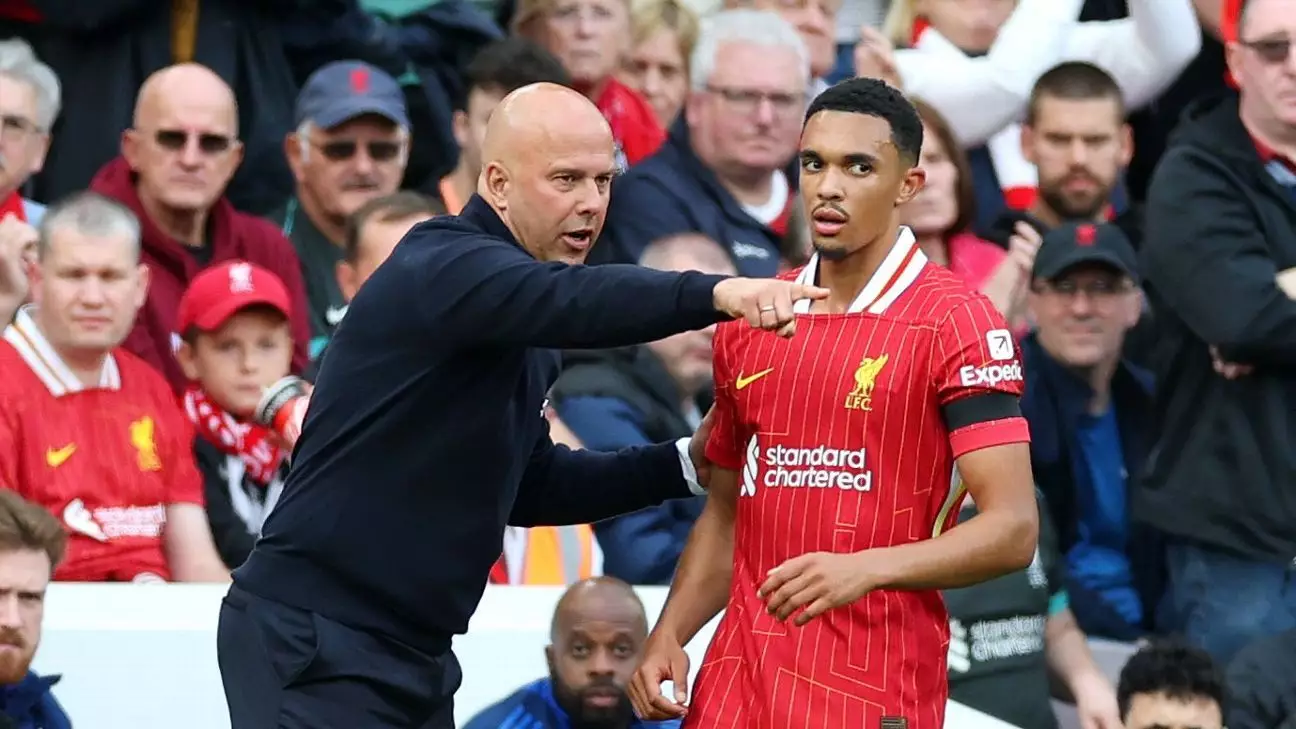In the age of modern football, where attacking flair often overshadows defensive responsibilities, Trent Alexander-Arnold stands out as a paradox. The Liverpool right-back, renowned for his offensive contributions, grapples with the duality of being lauded for his attacking genius while simultaneously facing scrutiny for his defensive abilities. Recent comments from Alexander-Arnold reveal a player eager to tackle criticism head-on, particularly from manager Arne Slot. His ambition to transform into a defender that rivals fear is a testament to his desire for growth and recognition in the footballing world.
Alexander-Arnold’s candidness about welcoming criticism speaks volumes about his mentality. He understands that becoming a top-tier defender in Europe requires not only skill but also an openness to constructive feedback. After Liverpool’s recent 3-0 triumph over Bournemouth, he expressed his commitment to improving his defensive game. By having Slot target specific areas for enhancement, he aims to refine his craft and mitigate any weaknesses that attackers might exploit. This dynamic between player and manager offers a transformative opportunity where criticism is not deemed as a personal attack but as a pathway to excellence.
It’s clear that Alexander-Arnold has been affected by the narrative that labels him as defensively frail. He recognizes the challenge of altering public perception. The perception around him could be considered unjust, particularly given Liverpool’s commendable record of four clean sheets in five league matches. Acknowledging that defense plays an integral role in a team’s success, he conveys a profound sense of responsibility. For him, it isn’t just about personal accolades; it’s about contributing to a collective effort that prioritizes solid defensive structures as the foundation for victory.
Alexander-Arnold’s analytical approach to his role further demonstrates his dedication. By setting precise goals for each game—covering aspects such as how often he is beaten, crosses allowed, and shots on goal—he actively engages in self-assessment. This methodical style indicates that he is not only aware of the broader implications of a defender’s duties but that he also holds himself accountable. His proactive stance of reviewing match footage with Slot allows him to grasp what improvements are necessary, illustrating a commitment to lifelong learning.
Looking Forward: Aiming for the Pinnacle
The 25-year-old defender’s aspirations extend beyond merely silencing critics; he strives for greatness. His statement about wanting to become “the best ever” reflects an ambition that drives successful athletes. Following his assist against Bournemouth, helping the team ascend to second in the Premier League, it’s evident that his journey is fueled by both collaborative mentorship and personal resolve.
Trent Alexander-Arnold exemplifies the modern athlete’s drive to evolve amid criticism. By embracing challenger feedback, he not only aims to improve himself but also enhances his team’s defensive capabilities. As he continues down this path, the football world will be watching closely, eager to witness the transformation of a player who is just as dedicated to his defensive responsibilities as he is to his undeniable attacking flair.

